The Spectacular Life of MMO Mastermind: Scott Hartsman
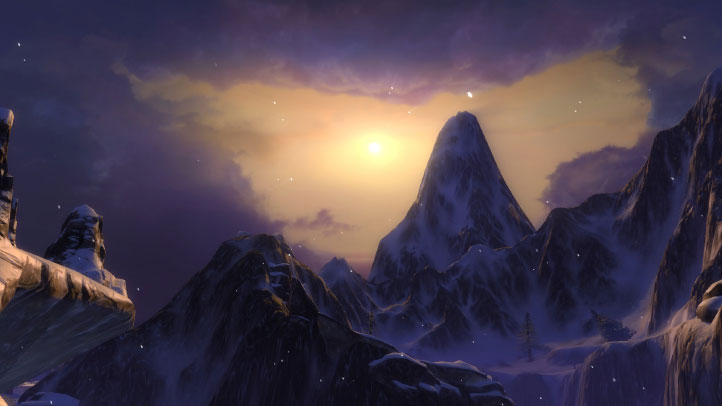
I recently decided to ask my good friend Scott Hartsman if he would be willing to do an interview for the Gaiscioch Magazine about his life on the inside of some of the most groundbreaking projects in the industry.
 Scott Hartsman is now the CEO of Trion Worlds, one of the largest producers of MMO Games currently on the market. His story began in 1986 as a game designer for Interplay on a little game called Scepter of Goth. His career took off, and his involvement in multiplayer games grew. From his early days of AOL Games to Everquest Online to RIFT, Scott has been a driving force behind several top-tier MMO productions.
Scott Hartsman is now the CEO of Trion Worlds, one of the largest producers of MMO Games currently on the market. His story began in 1986 as a game designer for Interplay on a little game called Scepter of Goth. His career took off, and his involvement in multiplayer games grew. From his early days of AOL Games to Everquest Online to RIFT, Scott has been a driving force behind several top-tier MMO productions.
I had the opportunity to ask him about his experiences and challenges in gaming along with the trends and changes in expectations that he sees in the MMO Industry. He has seen it all: subscriptions models, free-2-play, mobile, the rise and fall of some major games, and he has come out on top.
Thank you so much for joining us today Scott, Let me start this off by asking if you could tell us what it was like building games in the 80’s? What were budgets like back then and how long did it take to produce a game?
Scott Hartsman (SH): Honestly, at that point I would’ve been too young to even be aware of what budgets were, if they even existed. The first online games I worked on were people’s second jobs for the adults, and I was one of the 16-17 year olds pitching in, with the group being 6-8 people total.
I can tell you that the first two games I worked on paid precisely zero, and my second one paid about $100 a month which reimbursed my phone bill. The budgets must have run into the dozens of dollars over a year of development!
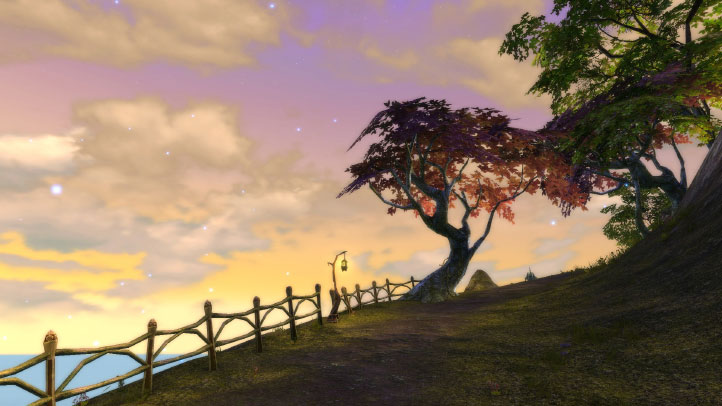
Do you have a favorite memory of your early years of game development that you’d be willing to share?
SH: Sure. In the early 90’s, I left games to get an engineering degree, and after I graduated, I ended up working a “Real Job” doing online software for a Fortune 100 company. No one really viewed games as a way for a “Respectable Midwestern Adult” to make an actual living that involved luxuries such as food and housing.
Out of a group of 150 programmers, maybe 4 or 5 of us had even heard of the Internet, much less actually used it. That made me one of the “experts,” which was pretty exciting -- as I ended up with far more responsibility than I had any right for a guy who had been out of school for five minutes. One of these tasks included being the sole developer on the Windows client, despite my only qualification being that I owned a Windows programming book that I had yet to open.
We ended up writing the first system that would end up being used for digitally signed electronic filings for legal documents in court anywhere in the US, including in the court that was handling the OJ Simpson trial at the time. Spoiler: Filings are boring. Huge disappointment.
About a year into that job, I got a call from an old friend, Jessica Mulligan, who remembered me from our time working on that first generation of MUDs (multi-user dungeons). She was out in the exotic lands of California, where there were actual Game Companies. And she was working at one of them! And she thought I might be able to help them! The company she was at needed someone to make two online trivia games where hundreds of people could play at the same time, with scoring and leaderboards. One was for Billboard, the other for The Improv. She wondered if I might be interested in helping out. It needed to be a Windows 3.1 client and run on a Solaris (Unix) server.
Perfect! I just had to learn Windows programming for that last job - of course I could make a game!
Remember, in my head, game development was this thing that Adults only did as their Second Job, so of course I said yes - I could clearly do it at night.
If this were a movie, three big boxes would arrive at my house with $25000+ of Sun Sparcstation hardware, then there’d be a programming montage as I spent the next few months trying to figure out what the hell I’d gotten myself into. Questions such as, “Do you have trivia questions to send me? I’m at the point I could use some,” were met with, “Hey! We should get some of those!”
We didn’t do a lot of planning in those days.
A few months later, I had a working, skinnable, minimally-massive-online trivia engine that could load the right theme of questions. It looked like the right-themed game, complete with chat rooms to use between games and leaderboards, and it was even kind of fun! Ok, it was a little fun.
That first online game was something I did entirely by myself, end to end, from databases to graphics and everything in between. That’s when I was re-hooked on games. I was playing with more different types of technology than the people I’d graduated with who were doing Serious Things with their degrees. I discovered making things that could be fun again!
That’s the game that led to my move to California where I’ve been ever since.
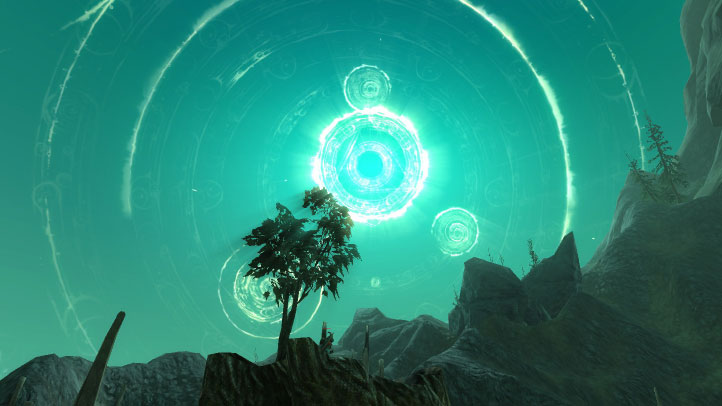
So tell us about 2001, where you took on what would be one of the biggest games to shape the MMO world--EverQuest (EQ) with SONY Online Entertainment. Did you ever expect it to take off like it did?
SH: Yes and no. That EQ existed at all completely caught me by surprise. At the time I first came out to California, a handful of us did want to make online RPGs using graphics instead of the text of the last generation, but none of us were even thinking about first person or 3D. It was too early for that unless your name was John Carmack or Michael Abrash. The knowledge hadn’t really gone wide among mere mortals yet. The way most people programmed visuals in DirectX was called “DirectDraw,” which was all 2D. “Direct3D” was just getting off the ground. People simply didn’t have 3D hardware yet.
Around that same time, I’d tried Ultima Online (UO). I had been a massive Ultima fan since the original Ultima, but UO didn’t do it for me for whatever reason.
I heard about EQ at a conference immediately before it came out, and a friend from a prior online game company found me and said, “You need to see this game.”
She described the visuals and the environment to me and how compelling it was turning out to be. My immediate response in my head was, “I am so never playing that game.”
I did know that if they could pull off what she was describing, it would be my perfect game. What I didn’t know was how many other people were really interested in that kind of thing, too.
I have to admit that at the time Everquest went online, I was a Site Lead at Harding Marketing overseeing their contract for the HP/Oracle alliance. I kept losing my best web developers to Everquest. I originally hated MMOs just because I feared what would happen to me if I played them. I saw Everquest as this black hole that consumed all of my talented programmers. Little did I know that soon I, too, would find that passion for the MMO world.
SH: The company that I was at had the same thing happen. We lost ops people to it entirely. On the bright side, a whole lot of things got automated really well--it left more time to play.
Even though I’d sworn that I wouldn’t play EQ myself, one of my coworkers bought me a copy, which led to my joining them all on the second or third day.
It’s safe to assume that I was markedly less productive than I should have been for a time.
MMOs have been at the heart of your professional life since 2001. What’s the biggest change that you’ve seen in how MMOs are produced now as opposed to then?
SH: It’s interesting. In some ways, it’s gotten bigger and continues to get bigger. I heard my first brag this year of someone proud of the fact they had 600+ people working on their non-MMO massive online game. That’s about 20 times as many people as the EQ/DAoC era. Those types of games need to be recordbreaking, #1 sellers to not be considered failures. The levels of planning and coordination that have to go into that are just astounding, not to mention the astronomical budgets.
In others, it’s come full circle. We’ve returned to having one or two people, or smaller teams of a handful, and some with dozens, just creating their own games in very similar ways to the original Wild West that existed in 1999-2000. Now that the tools are better, like Unity, AWS, platforms like Glyph for online game-specific tools, Steam for distribution, and Kickstarter for funding, smaller numbers of people can do a lot more and blaze their own trails.
It’s insanely fascinating being around to see it all happening at once.
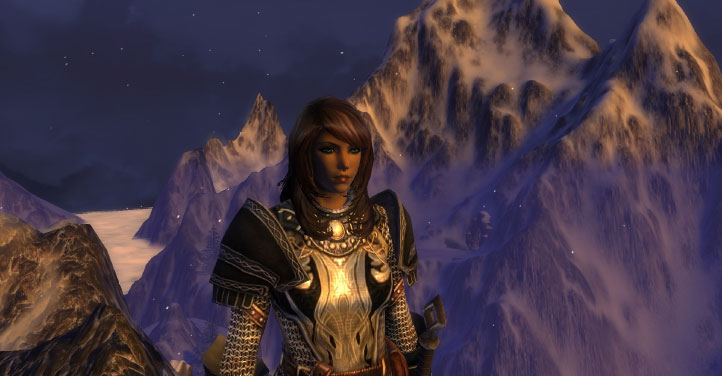
You’ve worked with both subscription models and Free-to-Play (F2P) games over the years, can you explain some of the pros and cons for these 2 models and give us a glimpse on how each of these plays a role? Also, what do you think the biggest factor is that has shaped the MMO landscape over the years? Why has the move to F2P become so popular?
SH: One of the biggest factors has been the change in social dynamic among friend groups as the number of online games has increased.
When online games were new, people went online to make new online game friends. If you had a lot of friends in real life, chances were that they didn’t play online games. A game only had to overcome the resistance of one person to get them to hop over the wall to commit to a subscription. They’d make new online game friends once they got there. A lot of the bigger, cross-game, persistent guilds started out back in those days, as I’m sure you know better than me!
Now, everyone is online. Everyone who plays games plays online games. Taken as a whole, people tend to play the games their friends are playing. Now, for a subscription game to get and keep an audience, they have to get entire friend networks to agree to pay a subscription. That’s problem number one.
The way the physics around subscribers work, think of games as having their own gravity, based on their number of players. Big games have massive gravity. If World of Warcraft (WoW) is Jupiter, it’s going to have the greatest pull. If you go back to WoW as a single player, unaffiliated with any persistent guild, chances are you know people you can play with. So, it’s not that big of a risk to restart a subscription and play. The same can’t be said for smaller games, and it makes you a lot less likely to go back and try those if there’s a barrier like a subscription standing in the way.
I’ve used this phrase a lot: with subscribers, you’re either “#1” or you’re “everyone else.” That gravity, or subscriber physics, is what I meant. For the last 15 years, there’s always been a #1 that was able to maintain and grow, while “everyone else” didn’t. Now in 2014, we’re seeing the former #1 declining, as more people try online games of entirely new genres, which also happen to be free like League of Legends and Defense of the Agents 2. Now, they’re the gravity holders.
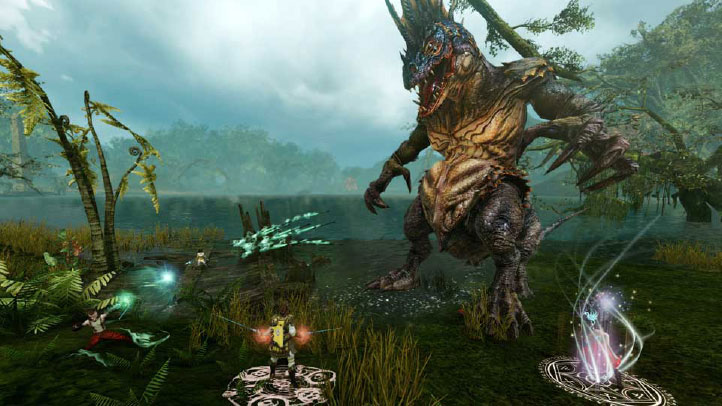
In your career, you have gone from a Game Designer to being the CEO of one of the major players on the forefront of MMOs today. How well have you adjusted from being the guy that builds everything to the guy that watches people build everything? Do you still get the chance to get your hands dirty, or have you found that you’re just the idea man now?
SH: There’s actually a third stage that comes after “hands dirty” and “guy with ideas,” when you don’t get to do much of either of those anymore. I think we’d call it “guy who tries to make sure the idea people and hands dirty people and everyone else can excel and thrive.”
If I were CEO of a smaller company, I’d be able to be more involved. At the scale we work at now, the best thing I can do is make sure great people are able to kick ass with as little meddling as possible. What I do now is more about helping set context at the macro level, so people are all as close to being on the same page as possible. That way, they know how to make sure what their teams are, and everyone knows how to make their own decisions in a way that works for our overall goals.
We set context, and we have to help other people grow into being their own deciders. We give them the values and they bring the tools. I think I’d be a terrible CEO if I was forcing ideas on people or creating bugs that I’d have no time to follow up on in their stuff. :)
As for the hands on stuff? Yes, I miss it constantly. Fortunately, it turns out that helping make sure other people have the latitude to be awesome is not a bad second pick.
So tell us, what’s the newest project you’re working on? I understand you’re now working with XL Games on bringing ArcheAge to the American market. Can you tell us a little about ArcheAge and your role in it?
SH: Indeed -- ArcheAge has been fantastic to be involved with. In a lot of ways, it’s the perfect fantasy complement to RIFT. Where RIFT is very intentionally a theme park with dynamic elements, ArcheAge is very intentionally a PvP sandbox with some themepark elements included to guide people.
When I first got involved with it late last year, my role was to act as the Executive Producer. My job was to get everything on track and make sure we were only asking for the tech we needed to get the game shipped at AAA quality, and nothing extra. We had to develop the team of experts who would get the game shipped. The translations were all well underway, but the tech integration work with our platform hadn’t begun yet.
In the time since, we’ve built up a fantastic product group to complement the translation work. We have been running the game in alpha-testing for a few months as the rest of the technology integration gets finished up.
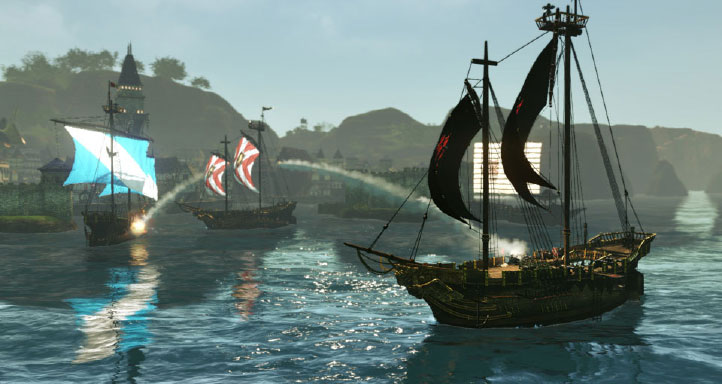
ArcheAge has been on many players’ radars for quite a while now, and it’s pretty exciting that Trion Worlds is bringing it to the American market. There’s always been a long history of pristine quality from the games you’ve worked on. What challenges do you see bringing an Eastern market title to the West?
SH: There’s definitely any number of them. At the strategic level, the overriding challenge is to make sure that we ship a game that meets the western AAA standards our players expect. It’s also all of the different types of tactical details underlying that broad statement that make up the actual day-to-day challenges. Most of those tactical details, no matter what they’re related to, all involve one thing: communication.
Think of any conversation you’ve had with someone where you didn’t perfectly understand each other on the first try. You probably had to go back and forth in a conversation with 5, 10, even 20 sentences trying to clarify before you both were on the same page. It’s perfectly natural and human.
Now try that where you’re only able to have that back-and-forth once a day, across a language barrier,16 hours apart. Things that would be a 5 minute chat in-studio can be a 5-day email thread.
We get around this a few ways by having people work off-shift from time to time on both teams, constantly connecting in real time to chat wherever possible, and taking trips out there to visit and realign. We also have to have infinite patience with each others’ unique challenges and the faith that we’re both on the same page strategically in wanting to deliver the best damn AAA experience we can for ArcheAge players in the west.
Do you have any estimations on when we will start seeing a beta test for ArcheAge’s American version?
SH: We’re very happy to say that closed beta testing begins in June.
Lastly I wanted to ask you, from your perspective of gaming, what trends do you see changing the MMO Landscape? Where can we expect to see it go over the next 10 years? Also, do you have any final thoughts or comments?
SH: I think we’re going to continue to see a flight from subscription at the mass scale, though I think it does have a place in specific types and sizes of games.
We’re just about that the point where massive AAA teams can’t scale much further without a massive new influx of gamers to support even more insane sales targets than what the “top of the line” already require to “not fail.” However, that would also take a new revolution in the human side of project management and coordination. If it’s true that the things you do at 600 people are different than the things you do at 60, it stands to reason they’d be as different from 600 to 1200 or 1500.
It’s good that tools like Unity, Unreal, and Cryengine and more available and commoditized. Online game services have become more open with Glyph, and assets have become more interchangeable via Unity Store and Crydev. These tools will let the 100 people of tomorrow do what 500 can today. It already lets 10 people today do what 50 did yesterday.
We’re going to see more people partnering with people that normally might have been competitors elsewhere. We’re already doing some of that today, and we’ll be doing more of it in the future. That’s really healthy for the entire online gaming ecosystem, since just like in the real world, it creates a situation where we’re all winning together.
Hopefully, that all makes for more games that are better games along with greater stability in the game-making space. That means more people will stick around to learn and constantly improve and then they will pass knowledge on to future generations of developers.
Thank you, Scott, for taking the time to meet with me. We’re all very excited to see what you have in store for ArcheAge and also the future of Trion Worlds. RIFT was a major landmark in the Gaiscioch community. We celebrated 2 years of fun times and made epic memories there. The guild system you laid out in RIFT was the best system we’ve used to date. Keep up the good work, and I look forward to the ArcheAge launch in America.
SH: Thanks, and we look forward to seeing you again!
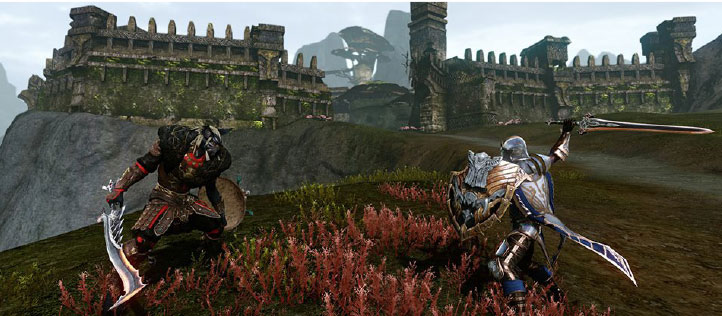
About the Author
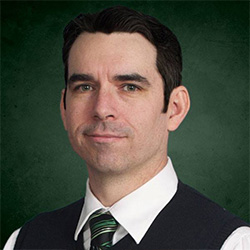
Foghladha
Managing Editor
Foghladha founded the Gaiscioch Social Gaming Community in 2001 and has since been the founder & activities director for this well known community. His role has gone beyond just running the Gaming Community and now includes running the Athletics Program in Portland, Oregon, as well as acting as the Managing Editor of the Gaiscioch Magazine, and is the Lead Producer on the Gaiscioch Livestream Productions. Additionally he networks with game developers to form relationships between Gaiscioch and development studios.
His experience in publishing dates back to helping his Grandparents who operated a printing press for over 40 years. In high school and college Benjamin excelled in journalism and played an active part in the school newspaper. Foghladha currently works full time as the director of technology for a franchise trade publication & education company.
